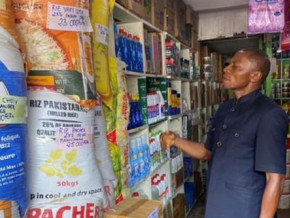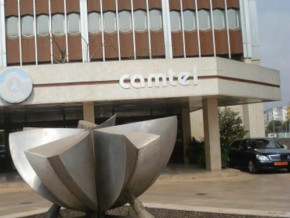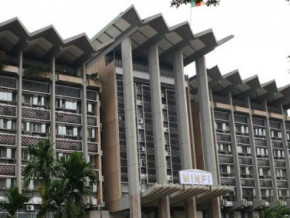
Cameroon banking sector undermined by the diminution of liquidities and the surge of Non-performing loans according to IMF

(Business in Cameroon) - Although the Cameroonian banking sector, which is the most solid in the CEMAC, shows signs of resiliency amid a crisis in the price of commodities that affects public finances and economic activities in the CEMAC Union, it has also shown signs of vulnerabilities for some time now.
Those problems, already raised by government sources, were made public by the deputy director of IMF, Mitsuhiro Furusawa, who sojourned raecently in to assess progress in the implementation of a 3-year programme established by Cameroon’s government and the Breton Woods institution.
“Your country’s banking sector so far has proven resilient in the face of the crisis. But there are signs of strain. Liquidity is declining, and non-performing loans are rising. Five small and non-systemic banks are insolvent; most have been for many years”, Mitsuhiro Furusawa said in a speech entitled “Unlocking Cameroon’s Growth Potential”.
Even though he did not reveal the names of those banking institutions, we concluded from our analysis that, at least three lenders are involved. These are: the Commercial Bank of Cameroon (CBC), recently nationalized but entangled in a long restructuring and assets capitalization procedure since 2009; the Cameroonian bank for SMEs whose managing director is always inviting its major shareholder, the Cameroonian government, to inject funds so her institution can operate efficiently; or the NFC Bank which, some years ago, was placed under temporary administration by Cobac, the watchdog of the CEMAC’s banking sector.
The problems mentioned by IMF deputy managing director lead us to think that the resolutions taken by BEAC, to revive banks in the CEMAC had no effects.
Indeed, in order to inject liquidities in banking sectors of member-States of CEMAC (Cameroon, Gabon, Equatorial Guinea, Chad and the Central African Republic), the Central Bank had decided at the end of its first standing committee on monetary policies this year, to lower by 50% mandatory reserves requirements imposed to banks in the region.
The Apex bank believed that this would have made available between FCFA500 billion and FCFA600 billion to banks in the CEMAC. According to Afriland First Bank CEO, Alphonse Nafack, who is also the head of Cameroon’s Bankers corporation, more than 20% of this amount should go to commercial banks in the country.
Mags frontpage
- Most read 7 days
- shared 1 month
- read 1 month






























